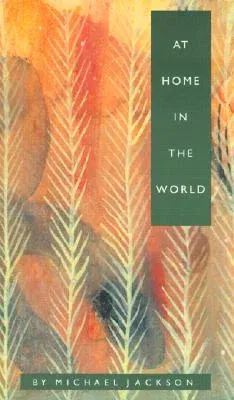Ours is a century of uprootedness, with fewer and fewer people living
out their lives where they are born. At such a time, in such a world,
what does it mean to be "at home?" Perhaps among a nomadic people, for
whom dwelling is not synonymous with being housed and settled, the
search for an answer to this question might lead to a new way of
thinking about home and homelessness, exile and belonging. At Home in
the World is the story of just such a search. Intermittently over a
period of three years Michael Jackson lived, worked, and traveled
extensively in Central Australia. This book chronicles his experience
among the Warlpiri of the Tanami Desert.
Something of a nomad himself, having lived in New Zealand, Sierra Leone,
England, France, Australia, and the United States, Jackson is deft at
capturing the ambiguities of home as a lived experience among the
Warlpiri. Blending narrative ethnography, empirical research,
philosophy, and poetry, he focuses on the existential meaning of being
at home in the world. Here home becomes a metaphor for the intimate
relationship between the part of the world a person calls "self" and the
part of the world called "other." To speak of "at-homeness," Jackson
suggests, implies that people everywhere try to strike a balance between
closure and openness, between acting and being acted upon, between
acquiescing in the given and choosing their own fate. His book is an
exhilarating journey into this existential struggle, responsive at every
turn to the political questions of equity and justice that such a
struggle entails.
A moving depiction of an aboriginal culture at once at home and in
exile, and a personal meditation on the practice of ethnography and the
meaning of home in our increasingly rootless age, At Home in the World
is a timely reflection on how, in defining home, we continue to define
ourselves.

